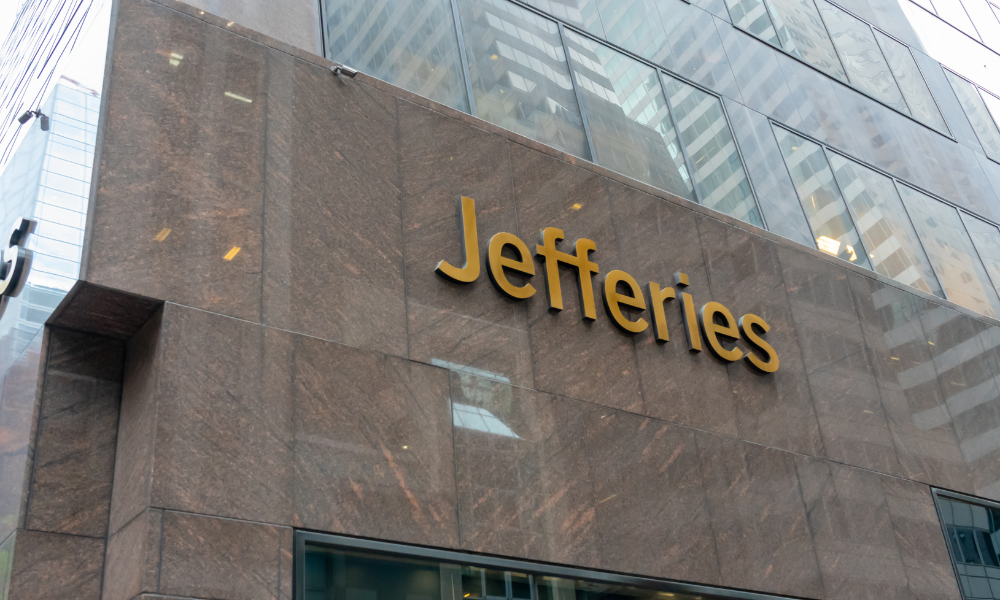

Hedge fund founder George Weiss has been found personally liable for millions of dollars in unpaid debts following the collapse of his investment firm, after a federal judge ruled in favor of Jefferies Strategic Investments, LLC and Leucadia Asset Management Holdings LLC in a contract dispute centered on a personal guarantee signed by Mr. Weiss.
The decision comes against the backdrop of the stunning implosion of Weiss Multi-Strategy Advisers LLC, one of the oldest hedge funds in the world, whose downfall was marked by years of high spending, controversial executive bonuses, and a dramatic unwinding of positions earlier this year.
Founded in 1978, the Weiss Companies managed over $2 billion in assets and enjoyed a reputation as one of the industry’s stalwarts. But by early 2024, the firm was spiraling. On February 29, 2024, in a Zoom call that left staff stunned, Mr. Weiss told portfolio managers to sell everything. His firm, he said tearfully, was shutting down after 46 years.
The internal turmoil had been building. Despite falling assets and worsening performance, executives allegedly continued lavish spending, flying on corporate jets and paying out six-figure bonuses. Court filings later revealed that as clients withdrew funds, the firm failed to cut costs or underperforming traders. Its chief investment officer, Jordi Visser, was accused of being more focused on building his personal brand than stabilizing operations.
The final blow came when its largest creditor, Leucadia Asset Management LLC, a strategic partner affiliated with Jefferies, demanded repayment on significant outstanding loans and promissory notes. Weiss Multi-Strategy Advisers filed for Chapter 11 bankruptcy in April 2024, leaving creditors, staff—many owed millions in deferred compensation—and counterparties scrambling.
Prior to bankruptcy, Mr. Weiss had entered into a Forbearance Agreement with Jefferies and Leucadia in February 2024. Seeking to postpone payment obligations, the agreement explicitly referenced prior debts, including a 2018 Strategic Relationship Agreement (SRA) and two separate Note Purchase Agreements (NPAs) totaling $53 million.
Crucially, Mr. Weiss signed the Forbearance Agreement both in his personal capacity and on behalf of the Weiss Companies. Several provisions bound him personally:
Nevertheless, after defaulting once again, the Weiss Companies filed for bankruptcy, and Mr. Weiss attempted to disclaim personal responsibility, prompting Jefferies and Leucadia to file suit seeking enforcement of the personal guarantee.
Judge Alvin K. Hellerstein of the U.S. District Court for the Southern District of New York sided firmly with Jefferies and Leucadia, granting summary judgment against Mr. Weiss.
Applying New York contract law, Judge Hellerstein ruled that:
Mr. Weiss raised multiple defenses—including claims of duress, lack of consideration, and lack of mutual assent—all of which the court rejected. His arguments that he signed under coercion, alleging threats of personal lawsuits and reputational damage, were dismissed as insufficient to constitute economic duress, especially given his status as a sophisticated businessman represented by counsel.
“Mr. Weiss disagrees with the decision and intends to appeal,” a spokesperson told IN. “Among other things, to the extent the so-called forbearance agreement is even enforceable, it does not constitute a payment guarantee by Mr. Weiss.”
The court’s ruling comes as legal battles over the firm’s collapse continue in bankruptcy court. Even though Leucadia has accused Weiss of treating the firm like his “personal piggy bank,” pointing to more than $28 million in executive bonuses paid while the firm was on the brink of insolvency, the bankruptcy examiner found that Weiss' behavior regarding the February 2024 bonuses, corporate jet use and prior compensation was not found to be inappropriate or improper. The only potentially inappropriate behavior was related to the REITs Retention Bonuses, which the Examiner concluded may be avoidable under bankruptcy law due to lack of equivalent value and because they may be seen as preferential payments.
While Weiss’s decision to rapidly unwind the fund minimized losses for investors, the fallout has left employees, some owed over $1 million in deferred compensation, and creditors scrambling to recover.
Key Takeaways
The judgment represents a major victory for Jefferies and Leucadia, positioning them favorably in ongoing bankruptcy proceedings as they seek to recover tens of millions in unpaid debts.

Research reveals a 4% year-on-year increase in expenses that one in five Americans, including one-quarter of Gen Xers, say they have not planned for.

Raymond James also lured another ex-Edward Jones advisor in South Carolina, while LPL welcomed a mother-and-son team from Edward Jones and Thrivent.

MyVest and Vestmark have also unveiled strategic partnerships aimed at helping advisors and RIAs bring personalization to more clients.

Wealth management unit sees inflows of $23 billion.

Deal will give US investment bank a foothold in lucrative European market.
Orion's Tom Wilson on delivering coordinated, high-touch service in a world where returns alone no longer set you apart.
Barely a decade old, registered index-linked annuities have quickly surged in popularity, thanks to their unique blend of protection and growth potential—an appealing option for investors looking to chart a steadier course through today's choppy market waters, says Myles Lambert, Brighthouse Financial.
